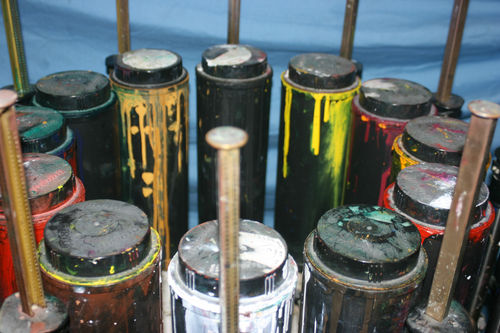10 Signs It’s Time to Replace Your Paint Dispenser
Keeping your paint dispenser up-to-date is essential for maintaining efficiency, customer satisfaction, and profitability. Here are 10 clear signs that it might be time to upgrade:
1. Frequent Breakdowns and Repairs
Why It Happens: Aging parts and outdated technology increase maintenance needs.
Signs: Frequent servicing or repairs, difficulty sourcing replacement parts, and rising costs.
Impact: Downtime disrupts operations, frustrates customers, and adds to expenses.
2. Inconsistent Dispensing Accuracy
Why It Happens: Worn components or lack of precision in older equipment.
Signs: Colors fail to match customer expectations, uneven flow, or clogged nozzles.
Impact: Dissatisfied customers, wasted materials, and harm to your store’s reputation.
3. Slow Dispensing Speed
Why It Happens: Lack of flow rate optimization and automated features in older dispensers.
Signs: Long wait times for custom orders and bottlenecks during busy periods.
Impact: Decreased customer satisfaction and missed sales opportunities.
4. Limited Colorant Compatibility
Why It Happens: Older dispensers may not handle modern paint formulations.
Signs: Inability to work with low-VOC, solvent-based, or specialty colorants.
Impact: Missed opportunities to serve a broader customer base and loss of competitiveness.
5. High Maintenance Costs
Why It Happens: Outdated equipment often requires more manual maintenance.
Signs: Rising costs for repairs, time-consuming cleaning, and recalibration.
Impact: Increased operational costs and less time for employees to focus on sales.
6. Outdated Technology
Why It Happens: The dispenser lacks features like self-cleaning, automated purging, or diagnostics.
Signs: Complicated interfaces and technology that doesn’t keep up with modern demands.
Impact: Slower operations, more errors, and frustrated staff.
7. Inability to Meet Customer Demand
Why It Happens: The machine struggles with increased sales or new market trends.
Signs: The dispenser can’t keep pace with growing demand, causing delays and complaints.
Impact: Lost revenue and reduced opportunities to expand your customer base.
8. Negative Impact on Customer Experience
Why It Happens: Slower service and inconsistent results from outdated dispensers.
Signs: Customer complaints about wait times, mismatched colors, or poor service.
Impact: Reduced customer loyalty and negative reviews that hurt your reputation.
9. Lack of Energy Efficiency
Why It Happens: Older models are less energy-efficient and produce more waste.
Signs: Increased utility costs and excessive waste in materials or energy.
Impact: Higher operational expenses and missed opportunities to appeal to eco-conscious customers.
10. Rising Competition
Why It Happens: Competitors invest in better equipment and customer experiences.
Signs: Local competitors offer faster, more precise services, drawing away your customers.
Impact: Loss of market share and declining revenue.
